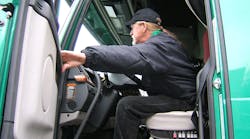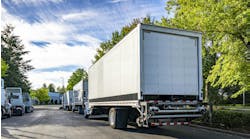Two things occurred recently that have made me a little angry: The Department of Labor study that said there is no driver shortage and the when I hear people talk about one of the benefits of autonomous being they do not need drivers. Both of those things seem to demean the value of the human being that is behind the wheel of a commercial vehicle. And both those things imply that over-the-road driving is simple and boring.
When I think of the skill level of all the truck drivers I know, especially the seven drivers who participated in Run on Less in 2017, I get bothered. Driving a truck is tough work and takes a great deal of skill. One of the key findings in our report on regional haul is that fleets are moving to regional haul in part to address the needs of those skilled drivers who are saying they want a better work-life balance and want to be home more frequently.
The idea that OTR drivers, as well as truck drivers in general, are easily replaced by robots is probably preventing some people from entering the industry as drivers. After all who wants to start a profession — and make no mistake truck driving is a profession — if they think it is going to disappear in a few years?
The reality is that even as we move down the road toward more automated trucks, we will need truck drivers for a very long time. And those drivers are key to maximizing the benefits of the automation technology such as advanced cruise control, automated powertrains, safety technologies and on and on.
Truck drivers play an important role in the economy and it is not like just anyone can drive safely and economically. Drivers have to train and be certified and licensed. Heck, we don't even let people under the age of 21 drive a truck across state lines. There are a number of drivers out there that have been honored for driving a million accident-free miles. Think about that. How skilled do you have to be to drive a big rig one million miles and never have an accident? I’d say the answer is obvious.
But good drivers aren't just safe drivers. They also are fuel-efficient drivers. We know that even with all the driver-assist systems on today’s trucks, a driver can influence fuel economy by as much as 30%. The seven Run on Less drivers showed that a properly spec’d truck operated by a driver committed to fuel economy can realistically achieve 10.1 MPG — well above the industry average.
The next time you hear someone downplaying what it takes to drive a truck or implies that truck driving is not a profession, have them talk to the drivers we know from Run on Less 2017 and the ones we are just getting to know from Run on Less Regional to find out the training and skill it takes to operate a truck. I bet that will change their mind.




